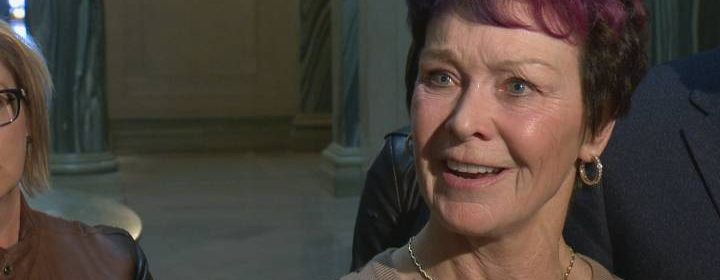Treatment beds, enforcement and funding: how to improve Sask. addictions response

Methamphetamine, or crystal meth, is a problem in communities across Saskatchewan.
“Meth is readily available, it’s fairly inexpensive. It has significant intoxicating effects, so it’s something that we do see is a driver in our crime for sure,” Regina Police Chief Evan Bray said.
Speaking at Regina’s Board of Police Commissioners meeting on Wednesday, Bray said that meth continues to be a significant factor in auto thefts. Those are up 43 per cent in 2018 compared to 2017.
The use of the drug leads to a variety of high-risk behaviour according to Bray.
“We have done a significant amount of enforcement. Our Drug Enforcement Team really does do a good job of focusing on meth – everything from supply to demand and consumption in the city,” Bray said.
While enforcement is an important competent in responding to drugs, Bray said they won’t be able to “enforce our way out of the problem”.
“I think we can’t just turn a blind eye to the fact that there are people that are addicted in our community,” Bray said.
“If there are things that we can do like needle exchange programs that keep them safe or harm reduction keeps them from spreading disease or getting sick has some significant health benefits, then as an overall strategy that needs to be looked at.”
The chief added that measures like needle exchange programs still need proper measures to ensure everything is working properly, so the centres don’t create problems too.
Bray said that he believes collaboration between police, health professionals and provincial officials are key to improving the province’s addiction response.
Treatment beds are essential in helping get people into recovery. Health Minister Jim Reiter said this is an immediate issue he wants to see addressed.
According to recovery advocate Dr. Wendy Gore-Hickman, Saskatchewan has a lot of catching up to do in this area.
“Our addiction treatment is so disjointed. There’s no flow from the time you need help to when you get help, and it makes it almost impossible for people to get help in this province,” Gore-Hickman said.
“At any one time, I’m working with 15 or 20 individuals and families trying to get them help and find them some pathway to recovery. There are many pathways to recovery, but trying to navigate anyone in the province is so difficult.”
The doctor referenced working with one client who needs to call into a detox centre daily to hold onto their spot on the waiting list to get in for treatment.
Saskatoon’s Calder Centre has 80 beds dedicated for people suffering addiction. According to the Saskatchewan Health Authority (SHA), wait times can range from eight weeks to no wait depending on the service and demand.
A detox facility in Prince Albert has seen its client refusal rate grow from 1,122 in the 2014-15 fiscal year to 2,418 in 2016-17. The most common reason for refusal is lack of space.
Dr. Gore-Hickman is a retired anesthesiologist, who is an addict in long-term recovery herself. She said that she had to go out of the province in order to get the help she needed.
“I’m a face of addiction. Somebody invested in me and got another 17 years of productivity out of me in the healthcare system. I’m worth investing in and so are the rest of them,” she said.
Gore-Hickman added that she knows of 40 other medical professionals in Saskatchewan that had to leave the province to get help with their addiction.
Like the opposition NDP, Gore-Hickman is calling for increased resources for mental health and addiction. The province has a goal to eventually reach seven per cent of the health budget going to this file. Currently, just over five per cent of the health budget does. Approximately $100 million more is needed to achieve seven per cent.
“Does that mean when you get to seven per cent you stop? No. Obviously, we want to look at outcomes. We’ve got addictions issues in this province and we’ve got wait times for mental health, so we’re going to use that as a target. We’re going to meet it, we absolutely are,” Reiter said.
The health minister could not provide a target for when the province will achieve seven per cent, but said that a bigger increase is expected in the 2019-20 provincial budget.
“There’s spending in other ministries in mental health as well. Education’s just one good example. The Farm Stress Line’s another good example,” Reiter said.
“The point I’ve tried to make to the critic before is if you bundle that $83 million in with the spending in health itself you’re getting probably in the range of 6.5 per cent.”
“There are a million Band-Aids that we can put on the situation. I’m not averse to using Band-Aids because people are dying,” Gore-Hickman said.
In her view, rapid access addictions treatment in emergency rooms is a positive first step, measures to help people overdosing get immediate help.
Reiter said that treatment options are his next priority after adding more beds. He said that ministry officials will be compiling a report based on what is being done in neighboruing provinces.
Source: Read Full Article